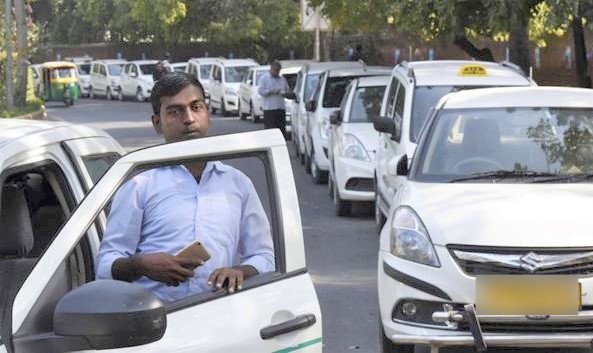Pune RTO Imposes Hefty Fines on Ola and Uber Drivers Over License Issue

Pune: Ola and Uber Rush to Arbitration Over Denied License Applications
The Pune Regional Transport Office (RTO) has taken stringent action against Ola and Uber cab drivers, imposing hefty fines and detaining several drivers for continuing their services despite being denied permission by the Regional Transport Authority (RTA).
Following the denial of permission to Ola and Uber, the State Transport Tribunal initiated a crackdown on cab drivers associated with these apps. Reports indicate that some drivers were detained, and fines of up to Rs. 18,000 were imposed on them.
The sudden enforcement actions caused panic among cab drivers at Pune Airport, with around 50 RTO officials conducting overnight raids. Rumors of visible cars leading to immediate fines prompted the crackdown, resulting in chaos and inconvenience for citizens arriving on late-night flights. The closure of the Ola Uber office in Aero Mall’s second floor added to the disruption.
The RTA’s refusal to grant licenses to Uber India Systems Pvt. Ltd and Ola’s parent company, ANI Technologies Pvt. Ltd, due to compliance issues led to these actions. Under Section 93 of the Motor Vehicle Act (MVA), these cases will be directly sent to court, as there is no provision for compounding fees to be recovered.
While RTO officials initially announced a crackdown, they later stated that no action would be taken against Ola and Uber cab drivers until mid-April. This decision allows companies time to appeal before the state transport appellate tribunal.
The Pune Regional Transport Authority has imposed a strict ban on Ola and Uber operations in Pune City, Pimpri-Chinchwad, and Baramati, under the order of the district collector. Ola and Uber had applied for licenses under the Motor Vehicle Aggregator Guidelines Act, 2020, but their applications were pending since December 2023. Upon review, it was found that the companies did not fully comply with the Act’s rules, leading to the denial of permission to operate.










